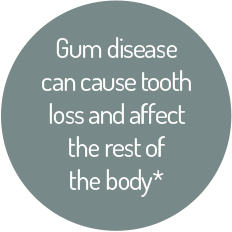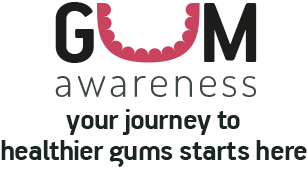Gum awareness: minimising the risk of gum disease
Most of us don’t think about our gums that much, but gum disease, also known as periodontal disease, is a serious condition that affects a large number of adults in the UK. Gum disease occurs when bacteria create a film of plaque (known as a biofilm) on your teeth, irritating the gums and causing them to become swollen, sore, or infected.
If left untreated, the gum can start to separate from the tooth, allowing pockets to form and the bacteria to spread beyond the gum line. Gingivitis, the first stage of gum disease, can cause red, sore, or bleeding gums, while periodontitis, a more serious form of gum disease, can spread beyond your gums to your bone.
Thankfully, the risk of gum disease can be minimised by taking good care of your oral health and visiting the dentist regularly. Despite it being one of the most wide-spread diseases across the world, it is preventable and can be easily treated when it is found early enough.
Periodontal disease is usually pain-free (sometimes called ‘the silent disease’) and so you may be unaware of it until your dentist or hygienist checks for it.

Who is at risk of gum disease?
Everyone has the potential to develop gum disease, but some people are more at risk than others.
1 People with diabetes
2 Smokers
3 People with high blood pressure
4 People with arthritis
5 People who are stressed
6 Women with adverse pregnancy outcomes
If the problems persist, contact your nearest mydentist practice and book an appointment with a dentist or hygienist.
Gum health FAQs
Why is gum health important?
Healthy gums are essential for strong teeth and a healthy mouth. Gums provide vital support for your teeth and protect the underlying bone. Ignoring gum health can lead to serious issues, like gum disease or tooth loss.
What are the signs of unhealthy gums?
Common signs include redness, swelling, bleeding when brushing or flossing, bad breath and receding gums. If you notice any of these symptoms, it’s important to contact your practice for a check-up.
What causes gum disease?
Gum disease is caused by plaque – a sticky film of bacteria that builds up on teeth. If not removed through regular brushing and flossing, plaque can irritate your gums and lead to infection.
How can I prevent gum disease?
The best way to prevent gum disease is to maintain a good oral hygiene routine. Brush twice a day, floss daily and visit your clinician for regular check-ups.
What is the difference between gingivitis and periodontitis?
Gingivitis is the early stage of gum disease, where gums become inflamed but permanent damage is yet to occur. If left untreated, it can progress to periodontitis, a more severe stage that can damage the gums and supporting bone.
Can gum disease affect my overall health?
Yes, research has shown links between gum disease and conditions like heart disease, diabetes and even complications during pregnancy. Taking care of your gums benefits your overall health, too.
What should I do if my gums bleed when I brush?
Bleeding gums can be an early sign of gum disease. Don’t ignore it – book an appointment with your dentist or hygienist to get your gum health checked and receive advice on improving your oral hygiene.
How is gum disease treated?
In its early stages, gum disease can often be reversed with improved oral hygiene and professional cleaning. For more advanced cases, treatments like scaling and root planing or even surgery may be needed.
How often should I see a dentist or hygienist for my gums?
Most people should see a dentist or hygienist every six months, but if you’re at higher risk for gum disease, your dentist may recommend more frequent visits to keep your gums healthy.
What role does a hygienist play in gum health?
Hygienists are trained in prevention and treatment of gum disease. They provide deep cleaning treatments, offer advice on maintaining good oral hygiene and can spot early signs of gum issues before they become serious.

Supported by
*Dossier on Periodontal Disease, European Federation of Periodontology, www.efp.org.
** Contact [email protected] for verification
† reference SM9163 GSK Resource
†† reference https://www.corsodyl.co.uk/products/toothpaste/
CH6B1CHCSYL01S019








